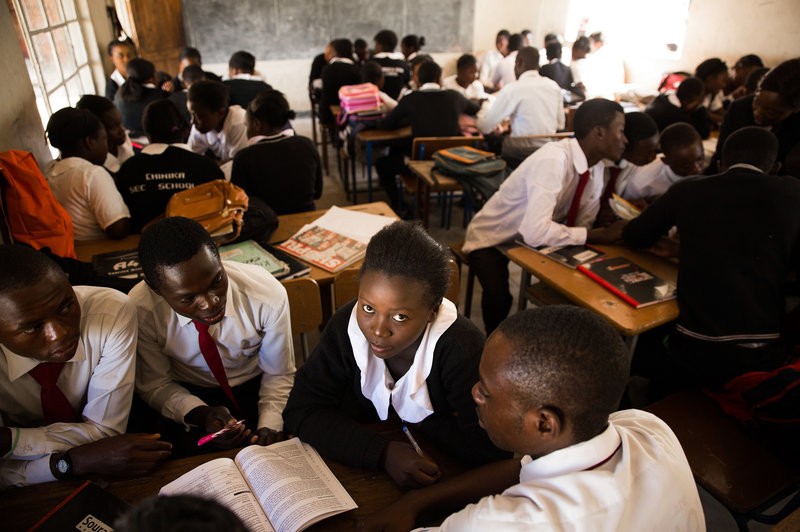Even in “progressive” western economies, women face criticism for being "too aggressive" and "too loud" when they negotiate. Deeply ingrained cultural norms are to blame here. Assertive behaviour, competitiveness, and profits are more aligned to societal expectations of men, whereas women are expected to accommodate to the welfare of others.
Whether it is negotiating a better business deal, a salary, or your personal life, the skill should not be limited to men, and not only to adults. Learning negotiation skills should already be encouraged in childhood to allow children have more command and agency over their lives. Recognizing the importance of negotiation education, Zambian girls are trained to negotiate in school.
Children in Zambia have a high dropout rate in the early teens because their parents cannot afford to send them to school, the rate being three times higher for girls than for boys. Dropping out of school poses major problems for girls later in life to get jobs, pursue further education, and makes them inevitably reliable on male partners for resources. As a result, girls are much more prone to have unwanted pregnancies, HIV, and low quality of life.
In Zambia, it is unacceptable for girls to speak out against their parents: thus their future is determined without their input. But these cultural norms can be destabilised.

One way to work against the gender-based norms is to demonstrate that there is mutual benefit in keeping girls in school. Parents need to be made aware of the advantages of providing their children with education.
School in Zambia costs about $100 per year, which is about 10 percent of a families yearly income. Clearly, school costs are high for families and the culture prioritizes boys' education over girls'. If the parents were better informed about the consequences of not sending their girls to school, perhaps they would invest in their daughters more.
Thus, the problem is not only high education costs, it's also the lack of information and of communication skills. Innovations for Poverty-Action recognized this problem and researched ways “to train Zambian girls to adopt the communication skills needed to negotiate health and education decisions with power figures in their lives.” They tested whether negotiation training has an impact on girls academic futures in 20 Zambian schools with 2,400 girls; the training proved successful.
Three years after the trial, girls who received negotiation training showed positive outcomes in terms of school attendance, good grades, and birth control. The training devised by Innovations for Poverty-Action was even incorporated in the national life skills and health curriculum in Zambia in 2016, likely empowering the generations of women to come.
The most admirable aspect of this trial is that the girls negotiated their fate themselves. They were not spoken for, they spoke up for themselves. Because of their newly acquired skills, these young women can now navigate their own lives.




